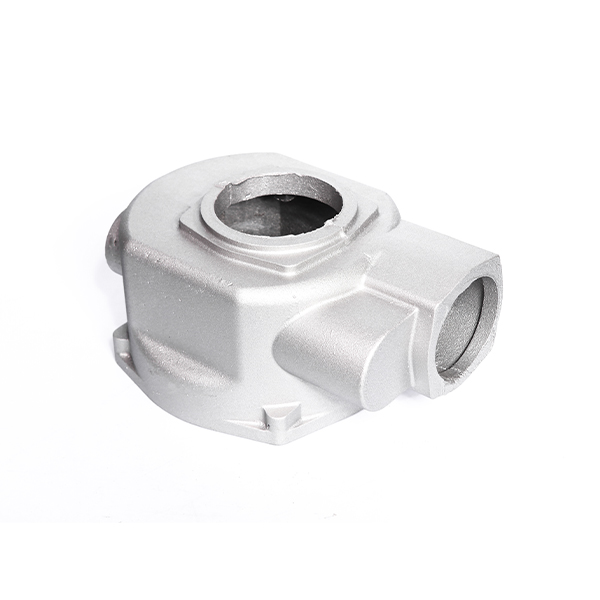Mobile:+86-311-808-126-83
Email:info@ydcastings.com
Versatile Flexible End Caps for 105 to 115mm Applications
Understanding the Importance of Flexible End Caps in Various Applications
In the world of manufacturing and product design, components such as flexible end caps play a crucial role in ensuring efficiency, safety, and functionality. The term flexible end cap refers to a type of cap that is designed to fit securely over the ends of tubes or pipes, providing a protective seal while allowing for some degree of flexibility. This article delves into the characteristics, applications, and benefits of flexible end caps, particularly focusing on sizes such as 105mm and 115mm.
What are Flexible End Caps?
Flexible end caps are versatile accessories made from materials such as rubber, silicone, or thermoplastic elastomer (TPE). Their primary purpose is to cover and protect the exposed ends of cylindrical objects, including pipes, tubes, and hoses. The flexibility of these caps allows them to conform to various shapes and sizes, providing a snug fit that is essential for preventing dust, dirt, and moisture ingress.
Characteristics
1. Material Composition Flexible end caps are often crafted from high-quality elastomeric materials, which offer a balance of flexibility and durability. This ensures that the caps can withstand various environmental conditions without cracking or degrading.
2. Size Range Flexible end caps come in a range of sizes, including popular dimensions like 105mm and 115mm. This variety allows for their application across different industries and equipment configurations.
3. Temperature Resistance Many flexible end caps can tolerate extreme temperatures, making them suitable for use in both high-temperature and low-temperature environments.
4. Chemical Resistance Depending on the material, some flexible end caps are resistant to a variety of chemicals, oils, and solvents, further extending their usability in industrial environments.
Applications
Flexible end caps are used in numerous applications across various industries
1. Automotive In the automotive industry, flexible end caps are often used to cover exhaust pipes and fuel lines. They help prevent contamination and ensure the integrity of these critical systems during manufacturing and transport.
flexible end cap 105 115mm

2. Construction In construction, these caps can be used to protect exposed rebar, piping, and electrical components. They ensure safety and prevent accidental injury while also protecting the materials from environmental damage.
3. Manufacturing Many manufacturing processes require the use of flexible end caps to safeguard machinery and equipment during transportation and storage. These caps prevent rust and corrosion, thereby prolonging the lifespan of the components.
4. Marine In marine applications, flexible end caps are crucial for sealing pipe ends and fittings, helping to prevent water ingress and ensuring the longevity of boats and marine equipment.
5. HVAC Systems Flexible end caps are also commonly used in HVAC applications to cover open ends of ductwork temporarily. This helps to maintain cleanliness in the systems prior to installation.
Benefits
The use of flexible end caps provides numerous advantages
- Protection They serve as a barrier against dirt, moisture, and other contaminants, maintaining the integrity of the enclosed components.
- Cost-Effectiveness Using flexible end caps can save money in the long run by preventing damage to critical components, reducing maintenance and replacement costs.
- Ease of Use Flexible end caps are easy to install and remove, making them user-friendly and convenient for various applications.
- Preventative Measure By covering exposed ends, these caps help avoid injuries and accidents in both industrial and residential settings.
Conclusion
In summary, flexible end caps, particularly in sizes like 105mm and 115mm, serve an essential function across multiple industries. Their protective qualities, combined with their adaptability to various environments, make them an invaluable component in manufacturing, automotive, construction, and many other sectors. By leveraging the benefits of flexible end caps, businesses can enhance the efficiency and safety of their operations while also prolonging the lifespan of their equipment. As industry standards evolve and the demand for reliable components grows, the role of flexible end caps will undoubtedly become even more significant.
-
Why Should You Invest in Superior Pump Castings for Your Equipment?NewsJun.09,2025
-
Unlock Performance Potential with Stainless Impellers and Aluminum End CapsNewsJun.09,2025
-
Revolutionize Your Machinery with Superior Cast Iron and Aluminum ComponentsNewsJun.09,2025
-
Revolutionize Fluid Dynamics with Premium Pump ComponentsNewsJun.09,2025
-
Optimizing Industrial Systems with Essential Valve ComponentsNewsJun.09,2025
-
Elevate Grid Efficiency with High-Precision Power CastingsNewsJun.09,2025











